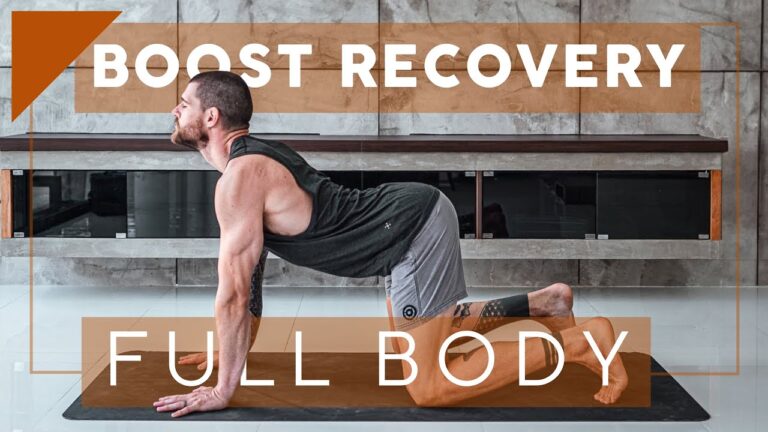ALS.
Just three letters, yet they have the power to completely change your life.
If you’ve been diagnosed with ALS, you’re probably wondering just what awaits you, physically, emotionally, and mentally.
And, you may be wondering what you can do to feel your best for as long as possible. Preferably, without medications (and their side effects).
Luckily, there are non-invasive, medication-free ways to manage your ALS symptoms and improve your quality of life.
Let’s take a look at the most effective alternative ALS therapies.
What Is ALS?
Before we get into the possibility of holistic treatment for ALS, let’s explore this rare neurological disease.
ALS is short for Amyotrophic lateral sclerosis. It’s also sometimes known as Motor Neuron Disease, Lou Gehrig’s Disease, and Charcot’s Disease.
ALS is defined as a progressive neurodegenerative disease, meaning that it worsens in scope or severity over time (progresses) as the nervous system cells weaken or die (degenerate).
In the case of ALS, the disease attacks the motor neurons of your central nervous system—the brain and spinal cord. As the motor neurons degenerate, your brain can no longer initiate and control muscle movements.
Over time, this leads to weaker muscles, loss of movement, and, eventually, paralysis.
This includes large, voluntary muscle movements, such as walking up the stairs or reaching for your cup of coffee. But it also affects smaller muscle movements you may not even think of, such as talking, swallowing, and breathing.
Roughly 90% of ALS cases are sporadic, with no known family history of ALS.
ALS Symptoms
Now that you know what ALS is and how it affects the body, let’s take a closer look at some of the early warning signs and tell-tale symptoms of the disease.
ALS is experienced differently by each patient. Both the progression and severity of the disease are unique to each person.
ALS symptoms often start in the limbs. You may feel cramps, spasms, or twitching in your arms and/or legs. This is called Limb Onset ALS.
For about 25% of ALS sufferers, however, the first symptom is speech difficulty, such as slurring words. This version of the disease is known as Bulbar Onset ALS.
As your symptoms worsen, your muscles may start to feel weaker or even stiffen. Eventually, as the disease progresses, this could lead to paralysis.
More severe symptoms of ALS include not being able to swallow, loss of speech, or being unable to breathe unassisted.
The five senses, however, remain unaffected by ALS. Cognitive function, in most cases, is also not compromised.
But as we mentioned, each person’s ALS journey is unique to them. If you’re diagnosed with ALS, it’s possible that you won’t experience all of these symptoms.
ALS Treatment
At the moment, there is no cure for ALS, although researchers continue working on a cure.
But that doesn’t mean you have to suffer.
Conventional treatments for ALS include:
- Breathing therapy
- Physical therapy
- Speech therapy
In the most severe cases of ALS, doctors may recommend more aggressive treatments such as feeding tubes, and breathing devices as needed.
However, many ALS patients prefer a more natural, whole-body approach than what is generally offered by conventional medicine.
And in fact, there are alternative solutions to manage your ALS symptoms just as, or even more effectively, than the solutions offered by traditional western medicine.
1. Eliminate Dietary Toxins
Although the exact cause of ALS remains a mystery, exposure to toxins—such as pesticides or heavy metals—is thought to be one of the triggers.
So to begin, you’ll want to remove any toxins from your diet. Pay particular attention to your food sources to make sure they are certified organic.
Other foods to eliminate include sugars, artificial sweeteners, and foods that are overly or full of chemicals.
Instead, choose nutritious, fresh foods that add nutrients to your diet. Depending on your diet preferences, this can include a variety of healthy fruits, vegetables, protein, and healthy fats. The less processed, the better.
12 Tips For Detoxing the Body
Toxins are all around us, but by adding these 12 healthy habits to our daily lives, we can detox our bodies and get back to feeling our best.
2. Load Up on Antioxidants
Another possible cause of ALS is oxidative stress, which is caused by unstable molecules known as free radicals.
Among other damage, free radicals attack motor neurons. If they’re already being negatively affected by ALS, this will make them even weaker or cause them to die even sooner.
However, antioxidants combat free radicals.
Adding foods high in antioxidants can help prevent free radicals from causing more damage to your body.
Foods high in antioxidants include:
- Apples, including Granny Smith, Gala, and Red Delicious
- Artichokes
- Berries
- Carrots
- Kidney beans
- Leafy greens
- Pecans
- Plums
- Russet potatoes
- Sweet cherries
3. Add a Probiotic Supplement
Your gut microbiome is home to trillions of bacteria. Some of these are beneficial (“good”) bacteria, while others are pathogenic (“bad”) bacteria.
Because your gut has a limited amount of room available, both kinds of bacteria are essentially jostling for space. Ideally, for optimum health, the beneficial bacteria will outnumber the pathogenic.
Probiotics support this outcome.
Probiotics are bacteria similar or identical to the good bacteria already living within your gut microbiome. When you consume them, they add their numbers to the good bacteria, crowd out the bad bacteria, and boost your overall health.
- Roughly 70-80% of your immune system is in your gut. When your gut is properly balanced, your immune system will be working at its best.
- So a healthy gut leads to a robust immune system.
Some foods and drinks, especially those that are , can be high in probiotics. However, it’s difficult to know how many probiotics you’re getting. That’s because most cannot make it past the harsh environment of acids, bile, and digestive enzymes that reside in your stomach.
Because of that, a probiotic supplement is the best solution. But it has to be the right one to ensure survivability. A spore probiotic is best.
Our favorite is Just Thrive Probiotic & Antioxidant.
Unlike other probiotics, including those found in foods and beverages, the probiotics in this supplement have a 100% survivability rate, thanks to their armor-like endospore shell. They’re guaranteed to “arrive alive” in your gut microbiome, where it can get to work restoring your gut health.
Even better, this probiotic is GMO-free and doesn’t contain sugar or other toxic ingredients.
And remember how we explained the importance of antioxidants in holistic ALS healing? You guessed it; this probiotic helps your body produce antioxidants in your gut, where they’ll be easily absorbed and highly effective.
4. Increase Your Mobility
One of the biggest symptoms of ALS is the weakening or stiffness of muscles. Exercise and physical therapy can help you manage this symptom and maintain your mobility for as long as possible.
Another risk of the muscular atrophy associated with ALS is the decrease in balance and increased risk of falling, both caused by rigid or weak muscles. Keeping your muscles as strong and loose can also keep you safe.
However, it’s important not to overdo it. It’s better to avoid overexertion, exhaustion, and muscle soreness. It’s better to spread out your exercise throughout the week than to try to pack it into one or two long sessions.
Also, be sure you choose low-intensity exercises such as walking, swimming, or light strength training—think resistance bands, not weights.
Fitness Boost: The Best Strengthening Exercises
Check out our top strengthening exercises for the lower body, upper body, core, and back, plus 5 tips for making the most of your workout.
5. Get Sufficient Rest
Fatigue is another common symptom of ALS. Unfortunately, so is insomnia. So even though you may be feeling exhausted, you still can’t fall asleep.
Yet rest is crucial to pain management, and it’s important to get enough sleep.
Here are some things you can do to sleep better, naturally.
- Create a calming sleep environment. Minimal noise, a cool room, and black-out curtains can all help.
- Try to keep a consistent schedule, even on the weekends.
- Take a warm, relaxing bath or drink warm tea to help you unwind.
- Talk to your doctor about serotonin and/or melatonin supplements.
6. Reduce Your Stress
As we mentioned earlier, stress can worsen your perception of pain symptoms. It can even cause your muscles to spasm or contract, adding on to the muscle issues you may already be experiencing from ALS.
Reducing stress as much as possible can be one of your greatest allies in managing your ALS symptoms.
As much as possible, do your best to reduce or even eliminate unnecessary stress at work or at home. When stress is unavailable, use positive stress management techniques to help you feel better emotionally.
Meditation and mindfulness are two of the most effective ways to reduce stress.
Other things you can do include indulging in your creative side, connecting with family and friends, listening to your favorite music or podcast, spending time in nature, and taking a social media break.
7. Other ALS Alternative Therapies
Although more research is needed, there are other holistic treatments that can help you manage your ALS symptoms.
One of these is chelation, or the elimination of heavy metals such as lead or mercury.
This is a relatively simple process in which you ingest a chelation agent, which attracts and binds to heavy metals in your system and renders them inactive. The toxins are secreted (eliminated from your body) with the chelation agent.
Another ALS alternative treatment is acupuncture, the insertion of thin needles at specified points along your body.
Acupuncture is commonly used in eastern or holistic medicine to treat pain, and can alleviate the muscle pain of ALS. It can also help reduce muscular spasms that are common in ALS.
These alternative treatments require more research before they can definitely be said to reduce ALS symptoms. But, even if they don’t improve ALS symptoms, they carry minimal risk and can improve your quality of life in other ways.
Resources for ALS
Being diagnosed with a disease such as ALS can feel lonely, especially if you don’t know anyone going through the same experience.
Here are some resources to help you feel understood and supported by the ALS community.
I Am ALS: This website is filled with ALS information, including the latest therapies, as well as a way of connecting with the ALS community.
ALS Association: This is the largest ALS non-profit in the U.S. with connections to multiple local chapters as well as information on living with ALS.
The HealthWell Foundation: Check this one out for information on financial assistance, including medical co-pays, funds, and grants of ALS patients.
International Alliance of ALS/MND Associations: ALS Awareness Day is June 21. Visit this website to learn how you can spread the word of this global event.
And don’t forget to reach out to your loved ones. Just because they don’t have ALS doesn’t mean they can’t offer you the love and support you need.
Final Thoughts
Any disease diagnosis can be life-changing. This is especially true with a disease such as ALS, with no known cure and such a variety in the scope and severity of symptoms.
However, ALS may be more manageable than you might think, and you don’t need to turn to modern medicine for help.
The alternative ALS therapies above can ease pain, reduce symptoms, and improve your quality of life, naturally.
You May Also Like…
The post ALS Natural Healing: 7 Holistic Ways to Manage Your Symptoms appeared first on Well.Org.
This content was originally published here.



















